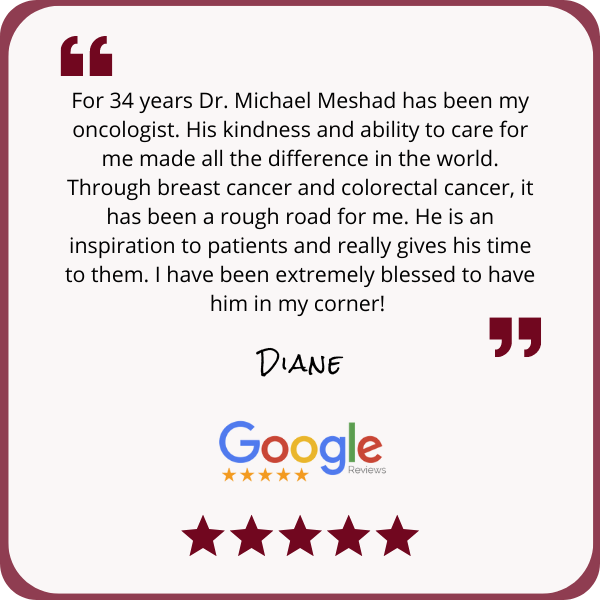Dr. Michael W. Meshad
Specialties:
Medical Oncology & Hematology
Education/Experience:
Medical School: University of Alabama at Birmingham
Internship: Letterman Army Medical Center
Residency: Internal Medicine, University of South Alabama Hospital
Fellowship: Medical Oncology, Dana-Farber Cancer Institute
Board Certification: American Board of Internal Medicine
Board Certification: Medical Oncology
Sees Patients:
Springhill Medical Center Location
“I’m Michael Meshad. I’ve been practicing medical oncology in Mobile since 1980. I’ve been with Southern Cancer Center since its inception in 2007.
I worked in a men’s shop 10 years selling men’s clothes. The only place you can have any individuality is in your tie or in your socks. I had surgery and I have problems with my neck and I can’t wear a tie anymore, so the only thing I’ve got is my socks. I used to have wild crazy ties, now I’ve got wild crazy socks.
My wife Kitty and I’ve been together since December 27, 1969. That’s a long time. We have three sons, all of whom are grown now. Two of them are married with children, so we have grandchildren now which is the joy of everyone’s life. We love to travel and we’ll typically take two big trips a year. I’ll have a guys trip every year where I go for trout fishing in Montana. I’ll take two of my sons and it’s a good time to bond with them and find out what’s new in their lives.
I wanted to treat patients, not diseases, and in oncology you can treat the whole patient. In the last 10 years we’ve seen an explosion in therapeutic options and what we can do for people. We’ve seen the birth and maturity of immunotherapy. We’ve taken patients that I used to put on hospice as recently as 5 to 10 years ago, and now we can not only treat them, put them in remission, prolong their lives, but perhaps even cure them, it’s awesome.”



